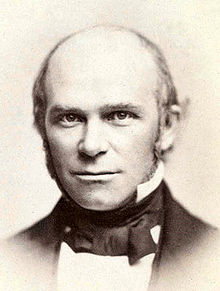Theodore Parker
| Theodore Parker | |
|---|---|

Parker circa 1855
|
|
| Born |
August 24, 1810 Lexington, Massachusetts |
| Died | May 10, 1860 (aged 49) Florence, Italy |
| Signature | |
Theodore Parker (August 24, 1810 – May 10, 1860) was an American Transcendentalist and reforming minister of the Unitarian church. A reformer and abolitionist, his words and popular quotations would later inspire speeches by Abraham Lincoln and Martin Luther King, Jr.
Theodore Parker was born in Lexington, Massachusetts, the youngest child in a large farming family. His paternal grandfather was John Parker, the leader of the Lexington militia at the Battle of Lexington. Among his colonial Yankee ancestors were Thomas Hastings, who came from the East Anglia region of England to the Massachusetts Bay Colony in 1634, and Deacon Thomas Parker, who came from England in 1635 and was one of the founders of Reading.
Most of Theodore's family had died by the time he was 27, probably due to tuberculosis. Out of eleven siblings, only five remained: three brothers, including Theodore, and two sisters. His mother, to whom he was emotionally close, died when he was eleven. He responded to these tragedies by refusing to lapse into what he called “the valley of tears,” focusing instead on other events and demands, and by affirming “the immortality of the soul,” later a benchmark of his theology.
Descriptions of Parker as a teenager recall him as “raw” and rough, emotional and poetic, sincere, “arch,” “roguish,” volatile, witty, and quick. He excelled at academics and gained an early education through country schools and personal study. He studied long and late when farm chores allowed, tutoring himself in math, Latin, and other subjects. At seventeen he began teaching in local schools. He continued tutoring himself and private students in advanced and specialized subjects. He learned Hebrew from Joshua Seixas (son of Gershom Mendes Seixas and Hannah Manuel), whom he may have baptized in a covert conversion to Christianity. He also studied for a time under Convers Francis, who later preached at Parker's ordination.
...
Wikipedia
